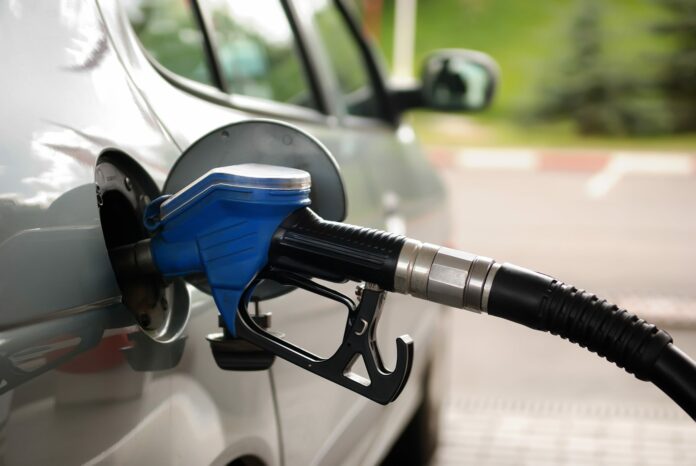Fuel tank:
Basically a holding tank for your fuel. When you fill up at a gas station the gas travels down the filler tube and into the tank. In the tank there is a sending unit which tells the gas gauge how much gas is in the tank. In recent years the gas tank has become a little more complicated, as it now often houses the fuel pump and has more emissions controls to prevent vapors leaking into the air.
Fuel pump:
On newer cars the fuel pump is usually installed in the fuel tank. Older cars have the fuel pump attached to the engine or on the frame rail between the tank and the engine. If the pump is in the tank or on the frame rail then it is electric and is run by your cars battery. Fuel pumps mounted to the engine use the motion of the engine to pump the fuel, most often being driven by the camshaft, but sometimes the crankshaft.
Fuel filter:
Clean fuel is critical to engine life and performance. Fuel injectors and carburetors have tiny openings which clog easily so filtering the fuel is a necessity. Filters can be before or after the fuel pump, sometimes both. They are most often made from a paper element, but can be stainless steel or synthetic material and are designed to be disposible in most cases. Some performance fuel filters will have a washable mesh, which eliminated the need for replacement.
Fuel injectors:
Most domestic cars after 1986 and earlier foreign cars came from the factory with fuel injection. Instead of a carburetor to mix the fuel and air, a computer controls when the fuel injectors open to let fuel into the engine. This has resulted in lower emissions and better fuel economy. The fuel injector is basically a tiny electric valve which opens and closes with an electric signal. In the picture below you can see the injectors towards the outer part of the intake. By injecting the fuel close to the cylinder head the fuel stays atomized ( in tiny particles ) so it will burn better when ignited by the spark plug.
Carburetors:
When it comes to understanding your car’s fuel system, a crucial component is ensuring your vehicle’s carburettor is in top condition. For reliable performance and optimal fuel efficiency, consider the expertise of Guaranteed Carburetors to rebuild truck carburetors and keep your vehicle’s fuel system running smoothly. A carburettor takes the fuel and mixes it with air without computer intervention. While simple in operation, they tend to need frequent tuning and rebuilding. This is why most newer cars have done away with carburettors in favour of fuel injection.
Common Problems:
I would say the most common problem is a clogged fuel filter. Make sure you follow your manufacturers recommendations as to when you should change the fuel filter. This information should be in your owners manual. Symptoms include sputtering at high speeds or engine not starting at all. Always check the ignition system first, if that’s ok then the next suspect is the fuel filter.
Next most common problem is the fuel pump failing. Most modern electric fuel pumps can be heard when you turn the key on. If you don’t hear the pump running and your car will not start, it could be your fuel pump. The first thing a mechanic will check is the relay which sends power to the pump. If this is operating correctly then the pump will have to be replaced.
Top 10 African countries with the highest fuel price in 2023
Last but not least is dirty injectors. While the fuel filter does a good job of filtering the fuel, it’s not perfect. Over time deposits and tiny particles lodge themselves in the injectors. This can clog and injector and prevent it from delivering the fuel the engine needs. It can also cause an injector to stick open and send too much fuel into the engine.
A regular addition of fuel system cleaner like STP Injector Cleaner, or Techtron fuel system cleaner can help keep your injectors clean. Most gas stations, department stores and all automotive parts stores will have a good cleaner available. Add it to your empty tank right before you fill up and it will clean as you drive.
I recommend doing this every 3 months to keep your injectors performing like new. Mechanics also offer a cleaning service where they actually disconnect the fuel line and flush cleaner through the engine. This is only necessary when you let your injectors get to a point where they can not be cleaned by a store-bought product. Regular use of a good in-tank cleaner will keep you from having to pay for this service.








